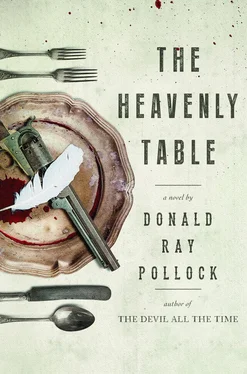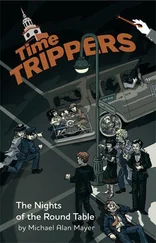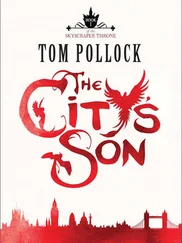Donald Ray Pollock
The Heavenly Table
For Patsy always
and
For Barney, the best dog ever, who passed away October 1, 2015
IN 1917, JUST as another hellish August was starting to come to an end along the border that divides Georgia and Alabama, Pearl Jewett awakened his sons before dawn one morning with a guttural bark that sounded more animal than man. The three young men arose silently from their particular corners of the one-room shack and pulled on their filthy clothes, still damp with the sweat of yesterday’s labors. A mangy rat covered with scabs scuttled up the rock chimney, knocking bits of mortar into the cold grate. Moonlight funneled through gaps in the chinked log walls and lay in thin milky ribbons across the red dirt floor. With their heads nearly touching the low ceiling, they gathered around the center of the room for breakfast, and Pearl handed them each a bland wad of flour and water fried last night in a dollop of leftover fat. There would be no more to eat until evening, when they would all get a share of the sick hog they had butchered in the spring, along with a mash of boiled spuds and wild greens scooped onto dented tin plates with a hand that was never clean from a pot that was never washed. Except for the occasional rain, every day was the same.
“I seen me two of them niggers again last night,” Pearl said, staring out the rough-cut opening that served as the only window. “Out there a-sittin’ in the tulip tree, singin’ their songs. They was really goin’ at it.” According to the owner of the land, Major Thaddeus Tardweller, the last tenants of the shack, an extended family of mulattoes from Louisiana, had all died of the fever several years ago, and were buried out back in the weeds along the perimeter of the now-empty hog pen. Due to fears of the sickness lingering on in a place where black and white had mixed, he hadn’t been able to convince anyone to live there until the old man and his boys came along last fall, half starved and looking for work. Lately, Pearl had been seeing their ghosts everywhere. The morning before, he’d counted five of them. Gaunt and grizzled, with his mouth hanging open and the front of his trousers stained yellow from a leaky bladder, he felt as if he might join them on the other side any minute. He bit into his biscuit, then asked, “Did ye hear ’em?”
“No, Pap,” Cane, the oldest, said, “I don’t think so.” At twenty-three, Cane was as close to being handsome as any sharecropper’s son could hope to get, having inherited the best of both parents: his father’s tall, sinewy frame and his mother’s well-defined features and thick, dark hair; but the harsh, hopeless way they lived was already starting to crinkle his face with fine lines and pepper his beard with gray. He was the only one in the family who could read, having been old enough before his mother passed for her to teach him from her Bible and an old McGuffey borrowed from a neighbor; and strangers usually viewed him as the only one of the bunch who had any promise, or, for that matter, any sense. He looked down at the greasy glob in his hand, saw a curly white hair pressed into the dough with a dirty thumbprint. This morning’s ration was smaller than usual, but then he remembered telling Pearl yesterday that they had to cut back if they wanted the sack of flour to last until fall. Pinching the hair loose from his breakfast, he watched it float to the floor before he took his first bite.
“Only thing I heard was that ol’ rat runnin’ around,” Cob said. He was the middle one, short and heavyset, with a head round as a chickpea and watery green eyes that always appeared a little out of focus, as if he had just been clobbered with a two-by-four. Though as stout as any two men put together, Cob had always been a bit on the slow side, and he got along mainly by following Cane’s lead and not complaining too much, no matter how deep the shit, how small the biscuit. Even telling time was beyond his comprehension. He was, to put it bluntly, what people usually referred to in those days as a dummy. You might come across such a man almost anywhere, sitting on his haunches around some town pump, hoping for a friendly howdy or handout from some good citizen passing by, someone with enough compassion to realize that but for the grace of God, it could just as easily be himself sitting there in that sad, ragged loneliness. Truth be told, if it hadn’t been for Cane looking out for him, that’s probably how Cob would have ended up, living out his days on a street corner, begging for scraps and the occasional coin with a rusty bean can.
The old man waited a moment for the youngest to respond, then said, “What about you, Chimney? Did ye hear ’em?”
Chimney stood with a dazed look on his pimply, dirt-streaked face. He was still thinking about the splay-toothed floozy with the fat tits that the old man’s raspy squawk had chased away a few minutes ago. Last night, as with most evenings whenever Pearl passed out on his blanket before it got too dark to see, Cane had read aloud to his brothers from The Life and Times of Bloody Bill Bucket, a crumbling, water-stained dime novel that glorified the criminal exploits of an ex-Confederate soldier turned bank robber cutting a swath of terror throughout the Old West. Consequently, Chimney had spent the last few hours dreaming of gun fights on scorched desert plains and poontang that tasted like honey. He glanced over at his brothers, yawning and scratching like a couple of dogs, eating what might as well have been lumps of clay and listening to that nutty bastard prattle on about his black buddies in the spirit world. Of course, he could understand Cob buying Pearl’s bullshit; there weren’t enough brains in his head to fill a teaspoon. But why did Cane continue to play along? It didn’t make any sense. Hell, he was smarter than any of them. Being loyal to any old mother or father was fine up to a point, Chimney reckoned, no matter how crazy or senile they had become, but what about their own selves? When did they get to start living?
“I’m talkin’ to you, boy,” Pearl said.
Chimney looked down at the shelf of greenish-gray mold growing along the bottom of the cabin walls. A simple yes or no wasn’t going to cut it, not this morning. Perhaps because he was the runt of the family, rebelliousness had always been the bigger part of his nature, and whenever he was in one of his defiant or pissed-off moods, the seventeen-year-old was liable to say or do anything, regardless of the consequences. He thought again about the juicy wench in his dream, her dimpled ass and sultry voice already fading away, soon to be extinguished completely by the backbreaking misery of swinging an ax in another hundred-degree day. “Don’t sound like no bad deal to me,” he finally said to Pearl. “Layin’ around pickin’ your teeth and playin’ music. Christ, why is it they get to have all the fun?”
“What’s that?”
“I said the way things is goin’ around this goddamn place, I’d trade even up with a dead darkie any day.”
The room went quiet as the old man pulled his slumped shoulders back and tightened his mouth into a grim leer. Clenching his fists, Pearl’s first thought was to knock the boy to the floor, but by the time he turned away from the window, he’d already changed his mind. It was too early in the morning to be drawing blood, even if it was justified. Instead, he stepped closer to Chimney and studied his thin, triangular face and cold, insolent eyes. Sometimes the old man almost found it hard to believe the boy was one of his own. Of course, Cob had always been a disappointment, but at least he had a good heart and did what he was told, and Cane, well, only a fool would find fault with him.
Читать дальше












